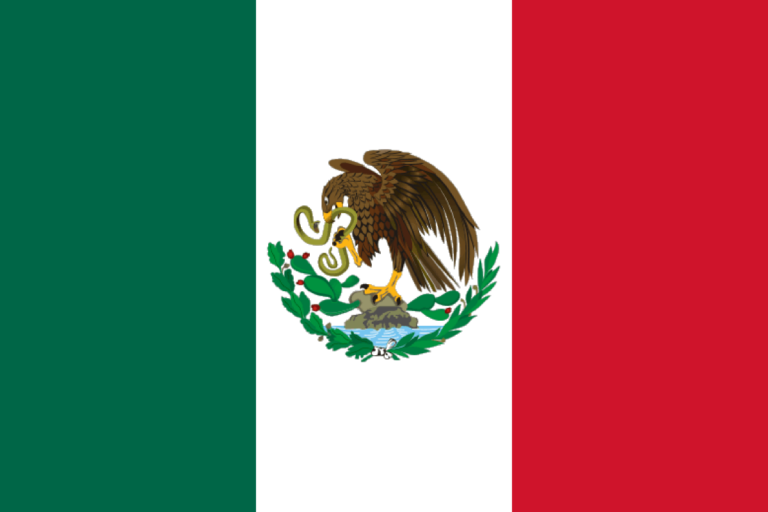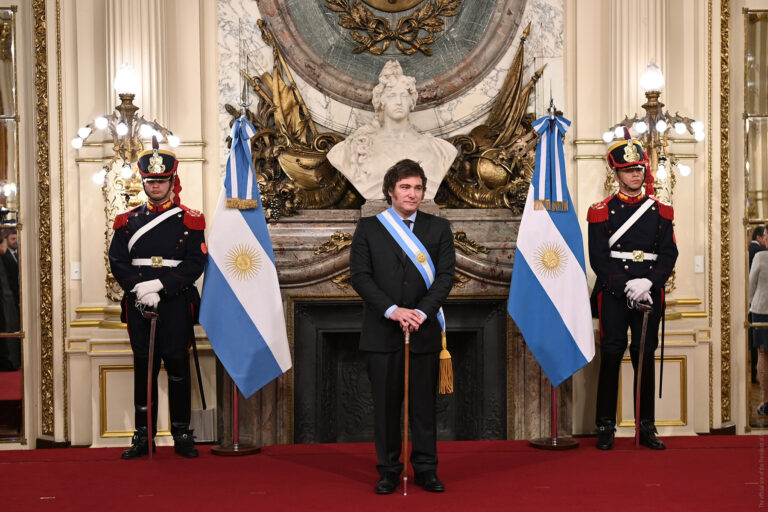Hungry Ghosts: Mao’s Secret Famine, by Jasper Becker
published by The Free Press (New York, New York: 1996)
ISBN 0-684-83457-X
352 pages.
Reviewed by Steven W. Mosher
Some of the darkest chapters in recent human history have been written in the People’s Republic of China. From the radical experiment in utopian engineering known as the Great Leap Forward, to the state-sponsored terror of the Cultural Revolution, to the Draconian one-child policy of today, China’s communist rulers have visited disaster alter disaster upon the Chinese people. While much is known about these and other political campaigns gone awry, there is one man-made disaster of monumental proportions which has been kept carefully under wraps.
From 1958 to 1962 the Chinese people starved to death by the tens of millions. But the “three difficult years,” as the Beijing regime still daintily refers to this atrocity, saw not merely death from famine on a massive scale. It was also a period of state terror, during which Party officials ransacked villages, torturing and murdering peasants for refusing to hand over secret stores of grain which did not exist.
Hungry Ghosts is the first full account of what is arguably the worst famine in all of human history. Jasper Becker, a BBC journalist who lived for several years in China, spent years in painstaking detective work to piece together both the cause of this tragedy, and its final cost in human lives. Although he strays from the truth in ascribing the famine, in part, to a lack of population control, his book is an otherwise solid indictment of central planning and Maoist hubris.
As soon as the People’s Republic of China was established in October 1949, Mao Zedong wanted to move as quickly as possible to create agricultural collectives, He castigated his more cautious colleagues as behaving “like old women with bound feet,” and pushed the peasants into joining ever larger collectives. This culminated in 1958 with the formation of the “People’s Communes,” huge, cumbersome agricultural cooperatives with tens of thousands of members.
To make matters worse, Mao insisted that the communes adopt agricultural techniques from the Soviet Union, which was reporting triple-digit increases in Food production. Such techniques as deep plowing, close planting, and increased irrigation, based as they were on Marxist-Leninist pseudoscience, turned out to be disasters in practice. Deep plowing, for instance, effectively destroyed the fertility of the soil for years to come, as peasants trenched the ground to depths of four or five feet. Seedlings planted in extremely high densities died, while the irrigation projects — mostly small reservoirs — were so ill-conceived and executed that they were later dismissed by the Ministry of Agriculture as “completely worthless.”
Mao, in his great vanity, was oblivious to all this. Instead, he believed the reports of sycophantic officials that food production had skyrocketed under the commune system and his other innovations. When Mao visited the model commune of Xushui in 1958, he saw piles of vegetables, turnips, cabbages, and carrots strategically placed along the main road. As Becker writes, “Officials told him that the peasants had dumped the vegetables because they had grown so much food they did not know what to do with it.” At the commune headquarters, the Party secretary told him that they were eating five meals a day free of charge and the autumn grain harvest had quadrupled to half a million tons. Mao was reportedly so staggered by this that he pushed up his cap and asked: “How can you consume all this food? What are you going to do with the surplus?”
Buoyed by a flood of such false reports, the Beijing regime encouraged peasants to eat grain. It doubled its grain exports, even giving away grain gratis to its friends in North Korea, North Vietnam and Albania. Although no one knew it at the time, every ship that left the docks condemned additional thousands to die.
By the winter of 1958-59 the commune granaries were bare, but Mao refused to believe that there was a food shortage. Instead, egged on by officials still boasting of record crops, he became convinced that the peasants were hiding their grain. In places like Henan, where the provincial leadership was fanatically devoted to Mao and his illusions, this led to mass murders that the Party would later describe as “a holocaust.”
As Becker writes, “The great terror began in the autumn of 1959… when the prefectural Party committee declared war on the peasants … launch[ing] a brutal anti-hiding campaign .… “It is not that there is no food [one local official said]. There is plenty of grain, but 90 percent of the people have ideological problems. Virtually all of the grain harvested was collected by officials who used arrest and torture to achieve their ends.
“By the start of winter,” Becker continues. “it was clear that the peasants had nothing to eat but tree bark, wild grass seeds and wild vegetables. [Local officials] declared that this was merely ‘a ruse of rich peasants’ and ordered the search for grain to be redoubled. Party cadres were also incited to smash the cooking pots in every household to prevent them from being used at home to cook grass soup.”
The result of such inhumanity was predictable; Entire villages starved to death. In Henan province alone, according to official reports, the death toll was 8 million. Other provinces suffered similar losses.
Becker concludes that Mao’s famine was “a deliberate act of inhumanity,” and asserts that, as a mass murderer, Mao should be ranked higher than Hitler and Stalin. After all, Hitler’s concentration camps were only responsible for 12 million deaths, while Stalin’s gulags devoured some 20 million souls. Stalin’s own famine, which raged in the Ukraine during the early 1930s, cost only 11 million lives. “’Mao,” Becker writes, “exceeded even these ghastly totals.” Far, far exceeded.
According to Chen Yizi, a senior Chinese Parry official who fled China after the 1989 Tiananmen massacre, an internal party investigation concluded that between 43 and 46 million people died during the famine. All in all, the document revealed some 80 million Chinese had died “unnatural deaths” under Mao — most of them in the famine following the Great Leap Forward.
Now that we have, thanks to Becker, the last word on the famine, only one question remains to be answered. How could a disaster of this magnitude be hidden from the world for so many decades? The Chinese Communist party’s natural penchant for secrecy offers us part of the answer. During the fifties and sixties, China was of-limits to Western, and especially American. writers and journalists. Visas were forthcoming only for true “friends of China,” who could be trusted to check their curiosity at customs, and write only what they were told during their stay.
Of that time, China historian Edward Friedman has written that “foreigners were fed a diet of lies to spread outside the country, to the effect that there was no famine in China.” Perhaps the leading China apologist of all time, Edgar Snow, who spent five months in China at the height of the famine, flatly denied its existence: “One of the few things I can say with certainty is that mass starvation such as China knew almost annually under former regimes no longer occurs .… I diligently searched, without success, for starving people or beggars to photograph.” Although he conceded that some people were suffering from “severe malnutrition,” he thought that it had probably not led to any significant number of deaths.
The British journalist Felix Greene returned from a visit to China to announce, in tones reminiscent of Snow, that “the indisputable fact is that the famines that in one area or another constantly ravaged the farmlands of China, and the fear of starvation, which for so long had haunted the lives of the Chinese peasants, are today things of the past.”
China’s small squad of resident foreigners also trotted out to deny that anything was amiss. British doctor J.S. Horn, a medical advisor of the Beijing regime, challenged reporting in the New York Times about a famine: “As a doctor, I should be quick to notice signs of malnutrition and a daily intake of 600 calories [the reported caloric intake would rapidly produce severe symptoms. Yet the general health of the people appears to be good.”
The “firsthand” verdict of Snow and others on the famine was widely accepted, even by many American China-watchers, who for years afterwards denied or at least downplayed one of the greatest human tragedies of our century. Snow’s views received a respectful hearing at Harvard and elsewhere after his return to the United States. They also found their way into textbooks, such as John K. Fairbanks introductory history of modern China, which devotes to the “three difficult years” precisely one sentence: “Malnutrition was widespread and some starvation occurred.”
Within China itself, official reports are scarcely more forthcoming. As Becker notes, “No books, no films, no plays are allowed to do more than make at passing reference to the ‘three years of natural disasters’ or the ‘three years of hardship’… In China’s collective memory, the famine is the dog that didn’t bark.” The Chinese Communist Party’s strategy for denying responsibility for the famine is to pretend that it never happened . “What famine?” shrug apparently bemused officials of the Chinese Ministry of Foreign Affairs when questioned.
The only point on which Becker and I part company concerns population control. Becker writes that “The Chinese are still suffering from the greatest and most far-reaching consequences of Mao’s illusions… that modern science was the key to a limitless expansion of food supplies… In the early 1960s, as China was starving, Mao wrote … “China’s big population is a very good thing.” “Becker is saying, in effect, that Mao erred in trusting science, and erred again in not imposing the one-child policy — or its equivalent — on the Chinese people as soon as he took power.
But did either of these beliefs lead to errors on Mao’s part? I think not. The history of the last half century has been one of astonishing increases in food production. The scientific revolution in food production, the so-called “green revolution,” has doubled crop yields worldwide. At the recent Rome Food Summit, FAO researcher Stein Bie commented that “[food] disasters are not taking place,” and that the earth can easily support 8 to 12 billion people — double its current population — in the next 25 years.
As far as the relationship between population and hunger is concerned, FAO chief analyst Jacques Verceuil commented at the same conference that, of the ten countries worst off in terms of food supply, nine have suffered serious warfare. Population size and density has nothing to do with it.
Now Becker, of course, knows all this. After all, he has written an entire book proving that China’s famine was caused by censorship and was the result of political decisions. And I am sure that he would be the first to admit that he has offered absolutely no evidence that the famine could have been averted, or even mitigated, had Mao earlier imposed a radical population control program on the Chinese people.
So what are we to make of Becker’s mental tic when it comes to population control? It may mean nothing more than that he is a creature of this misanthropic age, which in general regards families and children with a kind of light disdain. Still, the point that communist politics and not the Chinese people are the cause of China’s problems is important enough to insist upon, not least because the Chinese Communist Party has it the other way around.
There will be no PRC edition of Becker’s book, for it would never get past Beijing ever-vigilant censors. But for those who want the truth about the most disastrous famine in world history, Hungry Ghosts is your book.
Steven W. Mosher is the President or the Population Research Institute, and is the author of A Mothers Ordeal: One Woman’s fight Against China’s One-Child Policy.










